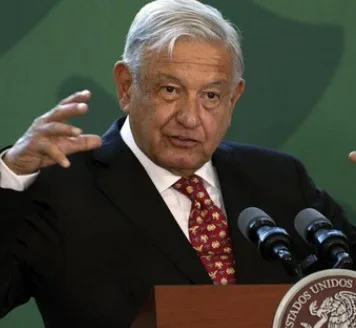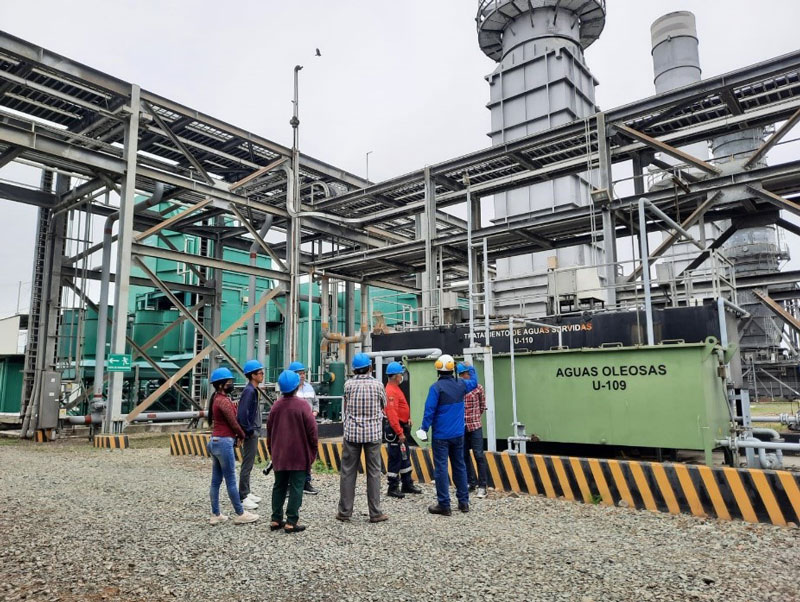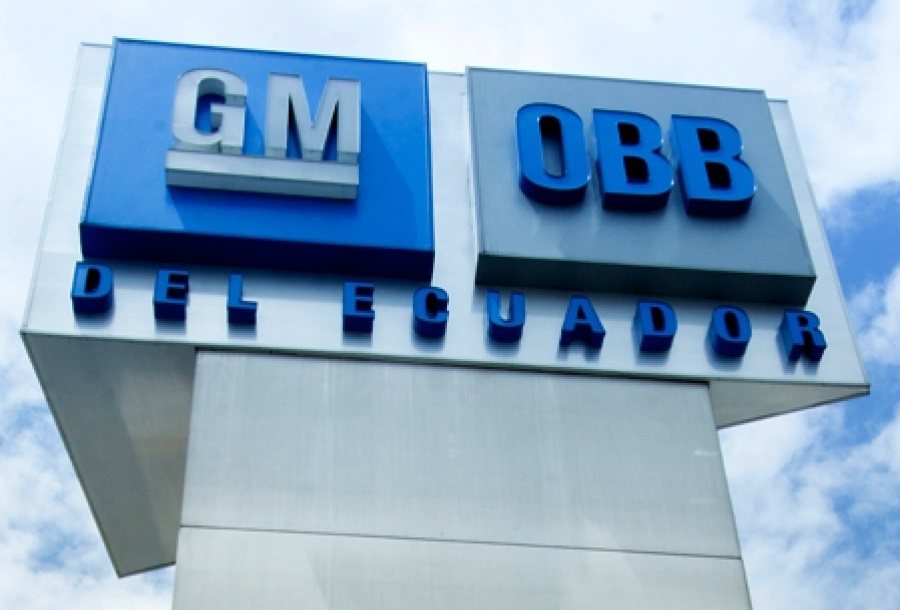Ecuador’s invasion of the Mexican embassy has wider implications for Latin America
By Jeff Abbott
Mexico has severed diplomatic relations with Ecuador after heavily armed police raided the country’s embassy, in a direct violation of international norms. Late in the evening on April 7, police entered the Mexican embassy in Quito, Ecuador’s  capital, to arrest former Ecuadorian Vice President Jorge Glas, who had requested political asylum in the embassy.
capital, to arrest former Ecuadorian Vice President Jorge Glas, who had requested political asylum in the embassy.
“No government has the right to enter an embassy in the way that occurred in Ecuador,” Mariana Aparicio, an expert on foreign relations and professor at the Universidad Nacional Autonoma de México, or UNAM, tells The Progressive. “It seems to me that it is a very dangerous precedent, not only for the region, but for the world.”

Mexican President Andrés Manuel López Obrador
The raid of the Mexican embassy has been condemned by governments across Latin America and in the international community.
Glas had served as vice president between 2013 to 2017. His term ended when he was convicted of acts of corruption in 2017 and sentenced to serve six years in prison. He sought political asylum after being released, citing political persecution. He had resided in the embassy since December 2023.
“Asylum rights exist,” Aparicio says. “At no point in history, at least in the twentieth century has a government dared to invade an embassy in order to extract a person, as has occurred in Ecuador.”
Attacks on the sovereignty of embassies are rare across Latin America. The last major violations of an embassy’s sovereignty occurred in January 1980 in Guatemala, when the Central American country’s security forces assaulted and set fire to the Spanish Embassy in Guatemala City.
At the time, farmers from the department of Quiche had occupied the embassy in protest of the massacre of Indigenous farmers in the highlands by the army as part of the counter-insurgency during Guatemala’s thirty-six-year-long internal armed conflict. The assault on the embassy left thirty-seven people dead, including the father of Nobel Prize winner Rigoberta Menchú, Vincente Menchú.
In another instance, during the 1989 United States invasion of Panama, U.S. troops fired into the Vatican embassy compound in Panama City, shooting out the lights as they attempted to evict former president Manuel Noriega, who was seeking asylum there. They also skirted international law by blaring loud music in order to force him to surrender.
In another case, almost 30 years earlier, the Cuban government raided the Ecuadorian embassy in Havana.
The order to storm the Mexican embassy to detain Glas came from Ecuador’s President Daniel Noboa, an inexperienced politician and heir to a banana empire, who was elected in August 2023.
“Without a doubt, [the invasion of the Mexican Embassy] shows improvisational inexperience,” María del Carmen Villarreal Villamar, an Ecuadorian researcher at the Brazilian Latitude Sul Platform, tells The Progressive. “But [this action] also shows an absolute lack of commitment to international standards and the human rights system.”
In spite of the widespread condemnation of the violations of international law and norms, Noboa has defended his decision to raid the embassy.
Tensions began to grow between Mexico and Ecuador after comments by Mexican President Andrés Manuel López Obrador. López Obrador, popularly known by his initials AMLO, had questioned in one of his morning press conferences if the 2023 assassination of Ecuadorian presidential candidate Fernando Villavicencio on August 9 contributed to the election of an inexperienced president. In response, Ecuador declared Raquel Serur Smeke, Mexico’s ambassador to the nation, a persona non-grata.
The diplomatic tensions between Ecuador and Mexico are just one of the recent conflicts between AMLO and a leader from Latin America.
In March 2024, AMLO exchanged words with Argentine President Javier Milei, after the new Argentine president referred to AMLO as “ignorant” in an interview. Milei also provoked tensions with Colombia after he referred to President Gustavo Petro as a “terrorist murderer” in another interview.
Mexico is set to hold presidential elections in June 2024 to elect the successor to AMLO. Claudia Sheinbaum, who is running with AMLO’s Morena party, is currently leading Xóchitl Gálvez of the center-right National Action Party, or PAN, in the polls.
While Sheinbaum briefly mentioned the attack on the embassy in Ecuador during a debate on April 7, the diplomatic crisis is unlikely to have any influence on how voters will decide in June.
The violation of the sovereignty of Mexico’s Embassy sets a dangerous precedent for the hemisphere, especially as there is a questioning or rejection of international norms and standards. As Aparicio points out, there is an emphasis on internal national politics at the cost of international norms.
“It is an instrument within political discourse that is used to justify domestic policy decision-making that has effects at the international level,” she explains.
“The Ecuadorian president’s speech is in the key of internal politics,” she says. “He assumes the relative cost of the effects that the decision to raid the Mexican embassy has at the international level because the primary interest has to do with Ecuador and the security of Ecuador. He is not going to allow anyone other than any accountable person to leave the country.”
The unilateral decision of Noboa to raid the Mexican embassy follows the example put forward by other governments in the hemisphere. This action takes as an example the America First policies of Donald Trump and the arguments of sovereignty utilized by the far-right administration of former president Jimmy Morales in Guatemala in his attacks against the United Nations-backed International Commission Against Impunity in Guatemala in 2018 and 2019. These actions have been taken in order to carry out controversial policies that have international ramifications.
But this position of disrespect for international agreements places a further threat on the right to asylum that has been growing in recent years, especially along the border between the United States and Mexico. This disregard for international norms in the name of internal national policy has contributed to a worsening crisis that affects the whole world. Along with that attack on asylum, there is also a transformation occurring, where populist presidents on both the left and the right snub the system of international norms put in place following World War II.
“We built an international regime after two terrible wars,” Aparicio says. “Those rules are not perfect, right? These rules have to be modified and that it is time to be updated to the twenty-first century. But these are rules that the member countries decide, they decide to join them in order to maintain peace at an international level.”
She concludes, “If we begin to erode those rules for national interest, then we are on the verge of absolute anarchy.”
________________
Credit: The Progressive

















